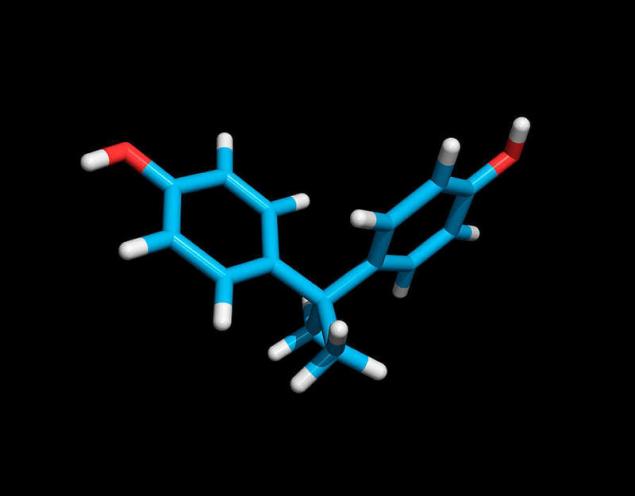579
Caution! Disruptors of the endocrine system in objects of daily use
A number of chemical substances in plastic products is known to act as endocrine disruptors. Being similar in structure to natural sex hormones, they interfere with their normal functioning.
This is particularly problematic for children who are still growing and developing, as the glands of the endocrine system and excreted hormones affect nearly all cells, organs and body functions.
The endocrine system as a whole plays an important role in the regulation of mood, growth and development, tissue function, metabolism, and sexual function and reproductive processes, and endocrine system damaging chemicals associated with a number of problems in reproductive health.
Phthalates are the most common known disruptors of the endocrine system. According to the Agency for environmental protection (EPA), annually produces more than 213 thousand tons of phthalates.
They are used primarily to make plastics such as polyvinyl chloride (PVC), greater flexibility and elasticity, but, in addition, they are present in air fresheners, antistatic agents, and personal care productssuch as shampoos, shower gels and cosmetics. Their prevalence in personal care products as believe, is the reason for which the level of phthalates in the body women, as a rule, higher than that of men.

Furniture, upholstery, mattresses and wall coverings can also contain phthalates. They are even found in infant formula and baby food (perhaps due to the fact that they migrate from packaging materials).
Now phthalates linked to lower IQ in children
While previous studies have linked exposure to phthalates with birth defects, low sperm count, polycystic ovary disease, early or late puberty, recent studies have shown that prenatal exposure to phthalates can lead to reduced IQ in children.
Also a connection was made between the concentration of phthalates in the mother's body during pregnancy and a child's ability to concentrate, short-term memory of the child, his skills conceptual reasoning and the time required to process and retrieve information, the child at the age of seven years. As reported by CNN Health:
"Women who are in the body during pregnancy had a large number of chemical substances di-n-butyl-phthalate and di-isobutyl phthalate, had children with significantly lower IQ scores, as found by a new study conducted by the journal "PLoSOne".
The study showed that by the age of seven years, the IQ of children exposed to high levels of these chemicals, more than six points lower than children exposed to low levels of chemicals...
The results of this study were not quite what was expected by the authors.
"We are somewhat surprised by the magnitude of decline in IQ, said Factor-Litvak. — We are not happy about these results, because phthalates are very common in the environment."
The exact cause of the reduction in IQ is still unknown, as it was only an observational study, but previous animal studies found that:
Phthalates – it's not just endocrine disruptors that can cause chronic health problems. In countless personal care products and plastics, including in the lining of cans, plastic and non-stick food containers, plastic wrappers, water bottles and cash register receipts are not only phthalates, but also bisphenol-a (BPA).

BPA, mimic the hormone estrogen, linked with these conditions:
Structural damage to the brainEarly puberty, stimulation of mammary gland development, reproductive cycles, ovarian toxicity and infertility
Hyperactivity, increased aggressiveness, and impaired learning
Heart disease
Increased fat formation and risk of obesity
Stimulation of the cells of prostate cancer
Changes in immune function
The increase in size of the prostate, reduced sperm production, and hypospadias (deformity of the penis)
Now to this list we can add high blood pressure. According to the results of a new randomized controlled trial, BPA from cans or plastic bottles is able to raise blood pressure in just a few hours after ingested. According to the newspaper "New York Times":
"The study showed that when people drank soy milk from cans, the level of BPA in urine rose dramatically within two hours, and blood pressure. But when they drank the same beverage from glass bottles, not using a coating with a BFA, — there has been no significant change in the level of a BFA or blood pressure.
These data suggest that people who every day drink from cans or plastic bottles, constant exposure over time may contribute to the development of hypertension".
The amount of BPA that leaks from the inner coating of cans may be more significant than previously thought. After the participants drink from the jar, the level of BPA in their urine increased by about 1,600 percent, compared to when they drank soy milk stored in glass.
According to the authors, this effect may be caused by the fact that BPA blocks estrogen receptors associated with the recovery of the blood vessels and control blood pressure. Breaking the thyroid hormone, BPA also indirectly affect blood pressure. The study's lead author Dr. Yun-Chul Hong told the "New York Times":
"Clinicians and patients — in particular, suffering from hypertension or cardiovascular diseases should be aware of potential clinical problems of high blood pressure when consuming canned food and drinks...", He recommends to give preference to fresh foods and glass bottles, and not to the banks and plastic containers and encourages manufacturers "to develop and use healthy alternatives to BPA for the inner coating of cans".
Caution: the claims about the absence of BFA does not guarantee security
In response to consumer demand for products that do not contain BPA, many manufacturers have switched to using a different chemical called bisphenol-S (BFS). But BFS is not less toxic than BPA. And in some cases it is even worse!
The replacement of one chemical substance that Deplete the endocrine system, others do not makes products safer, and the label "without BPA" might not mean anything. Last year researchers from the medical Department of the University of Texas found that even the smallest concentrations less than one part per trillion – BFS can lead to the disruption of the functioning of the cells.
The potential consequences of this failure are such metabolic disorders as obesity, diabetes and even cancer.
Other animal studies also show that BFS on effects similar to BPA. Thus, researchers studying the influence of BFS on the striped Zebra fish embryos found that fish exposed to BFS in the same concentrations as in the water of the nearby river, marked by the explosive growth of the neurons, which led to hyperactive and erratic behavior. In embryos of fish exposed to BFS, marked 170% growth of neurons and exposed to BFA – 240 percent growth.
Another study on rats found that exposure to BPA or BFS causes cardiac arrhythmia in females. In this case, the dose was similar to the concentration found in the human body. The researchers found that BFS blocks the estrogen receptor (which is found only in females) and destroys calcium channels. This is a common cause of cardiac arrhythmia in humans.
How to avoid toxic chemicals
Although to keep away from all potentially hazardous chemicals is almost impossible, you can still minimise their effects, if we remember the key principles:
Author: Dr. Joseph Mercola
The materials are for informational purposes. Remember, self-life-threatening, for advice regarding the use of any medicines and methods of treatment, contact your doctor.
Also interesting: 4 of the signal that indicate a potassium deficiency
6 stages of development of ANY disease is IMPORTANT!
Source: russian.mercola.com/sites/articles/archive/2016/12/06/%D1%84%D1%82%D0%B0%D0%BB%D0%B0%D1%82%D1%8B-%D0%B1%D0%B8%D1%81%D1%84%D0%B5%D0%BD%D0%BE%D0%BB-a.aspx
This is particularly problematic for children who are still growing and developing, as the glands of the endocrine system and excreted hormones affect nearly all cells, organs and body functions.
The endocrine system as a whole plays an important role in the regulation of mood, growth and development, tissue function, metabolism, and sexual function and reproductive processes, and endocrine system damaging chemicals associated with a number of problems in reproductive health.
Phthalates are the most common known disruptors of the endocrine system. According to the Agency for environmental protection (EPA), annually produces more than 213 thousand tons of phthalates.
They are used primarily to make plastics such as polyvinyl chloride (PVC), greater flexibility and elasticity, but, in addition, they are present in air fresheners, antistatic agents, and personal care productssuch as shampoos, shower gels and cosmetics. Their prevalence in personal care products as believe, is the reason for which the level of phthalates in the body women, as a rule, higher than that of men.

Furniture, upholstery, mattresses and wall coverings can also contain phthalates. They are even found in infant formula and baby food (perhaps due to the fact that they migrate from packaging materials).
Now phthalates linked to lower IQ in children
While previous studies have linked exposure to phthalates with birth defects, low sperm count, polycystic ovary disease, early or late puberty, recent studies have shown that prenatal exposure to phthalates can lead to reduced IQ in children.
Also a connection was made between the concentration of phthalates in the mother's body during pregnancy and a child's ability to concentrate, short-term memory of the child, his skills conceptual reasoning and the time required to process and retrieve information, the child at the age of seven years. As reported by CNN Health:
"Women who are in the body during pregnancy had a large number of chemical substances di-n-butyl-phthalate and di-isobutyl phthalate, had children with significantly lower IQ scores, as found by a new study conducted by the journal "PLoSOne".
The study showed that by the age of seven years, the IQ of children exposed to high levels of these chemicals, more than six points lower than children exposed to low levels of chemicals...
The results of this study were not quite what was expected by the authors.
"We are somewhat surprised by the magnitude of decline in IQ, said Factor-Litvak. — We are not happy about these results, because phthalates are very common in the environment."
The exact cause of the reduction in IQ is still unknown, as it was only an observational study, but previous animal studies found that:
- Phthalates can affect the activity of the aromatase enzyme, which converts testosterone into estrogen. Estrogen plays an important role in brain development
- The chemical can interfere with the production of thyroid hormones, which play a role in the timing of brain development
- Phthalates may also disrupt brain activity related to the neurotransmitter dopamine, which can cause symptoms such as inattention and hyperactivity
Phthalates – it's not just endocrine disruptors that can cause chronic health problems. In countless personal care products and plastics, including in the lining of cans, plastic and non-stick food containers, plastic wrappers, water bottles and cash register receipts are not only phthalates, but also bisphenol-a (BPA).

BPA, mimic the hormone estrogen, linked with these conditions:
Structural damage to the brainEarly puberty, stimulation of mammary gland development, reproductive cycles, ovarian toxicity and infertility
Hyperactivity, increased aggressiveness, and impaired learning
Heart disease
Increased fat formation and risk of obesity
Stimulation of the cells of prostate cancer
Changes in immune function
The increase in size of the prostate, reduced sperm production, and hypospadias (deformity of the penis)
Now to this list we can add high blood pressure. According to the results of a new randomized controlled trial, BPA from cans or plastic bottles is able to raise blood pressure in just a few hours after ingested. According to the newspaper "New York Times":
"The study showed that when people drank soy milk from cans, the level of BPA in urine rose dramatically within two hours, and blood pressure. But when they drank the same beverage from glass bottles, not using a coating with a BFA, — there has been no significant change in the level of a BFA or blood pressure.
These data suggest that people who every day drink from cans or plastic bottles, constant exposure over time may contribute to the development of hypertension".
The amount of BPA that leaks from the inner coating of cans may be more significant than previously thought. After the participants drink from the jar, the level of BPA in their urine increased by about 1,600 percent, compared to when they drank soy milk stored in glass.
According to the authors, this effect may be caused by the fact that BPA blocks estrogen receptors associated with the recovery of the blood vessels and control blood pressure. Breaking the thyroid hormone, BPA also indirectly affect blood pressure. The study's lead author Dr. Yun-Chul Hong told the "New York Times":
"Clinicians and patients — in particular, suffering from hypertension or cardiovascular diseases should be aware of potential clinical problems of high blood pressure when consuming canned food and drinks...", He recommends to give preference to fresh foods and glass bottles, and not to the banks and plastic containers and encourages manufacturers "to develop and use healthy alternatives to BPA for the inner coating of cans".
Caution: the claims about the absence of BFA does not guarantee security
In response to consumer demand for products that do not contain BPA, many manufacturers have switched to using a different chemical called bisphenol-S (BFS). But BFS is not less toxic than BPA. And in some cases it is even worse!
The replacement of one chemical substance that Deplete the endocrine system, others do not makes products safer, and the label "without BPA" might not mean anything. Last year researchers from the medical Department of the University of Texas found that even the smallest concentrations less than one part per trillion – BFS can lead to the disruption of the functioning of the cells.
The potential consequences of this failure are such metabolic disorders as obesity, diabetes and even cancer.
Other animal studies also show that BFS on effects similar to BPA. Thus, researchers studying the influence of BFS on the striped Zebra fish embryos found that fish exposed to BFS in the same concentrations as in the water of the nearby river, marked by the explosive growth of the neurons, which led to hyperactive and erratic behavior. In embryos of fish exposed to BFS, marked 170% growth of neurons and exposed to BFA – 240 percent growth.
Another study on rats found that exposure to BPA or BFS causes cardiac arrhythmia in females. In this case, the dose was similar to the concentration found in the human body. The researchers found that BFS blocks the estrogen receptor (which is found only in females) and destroys calcium channels. This is a common cause of cardiac arrhythmia in humans.
How to avoid toxic chemicals

Although to keep away from all potentially hazardous chemicals is almost impossible, you can still minimise their effects, if we remember the key principles:
- Eat mostly fresh, raw whole foods. Processed and packaged food is a common source of BPA and phthalates-particularly cans, but also foods packaged in plastic wrap.
- When buying products, prefer Packed in glass bottles, not plastic or cans.
- Keep food and beverages in glass rather than plastic containers or use plastic wrap. Warming food in the microwave, use a glass pot, because the high temperature increases the secretion of chemicals from plastic. Remember that even "BPA free plastic" washed out other destructive endocrine system chemicals that are as harmful as BPA.
- For baby food, use glass bottles.
- Be careful with cashier's checks. If you regularly go to the store, refer to the manual's recommendation to get receipts without BPA. I buy my food in the "Publix", and when I called them about the receipts, it turned out that they had long since passed for such. However, it makes sense not to have contact with all these receipts.
- Look for products made by companies that care about environment and animals, are stable, have a certificate of organic production without GMOs. This applies to everything – from food and personal care products to building materials, carpets, paints, children's products, furniture, mattresses and more. Making repairs in the house, pay attention to "green" alternatives without the toxins, instead of regular paint and vinyl floor coverings, which are another source of phthalates.
- Choose toys made from natural materials to avoid plastic chemicals like phthalates and BPA/BFS, especially items that children can suck or chew.
- If possible, feed your baby only breast, at least in the first year of life (so you can avoid exposure to phthalates from the packaging of baby food, plastic bottles and teats).
- Use natural cleaning products , or cook them yourself.
- Go to organic toiletries, including shampoo, toothpaste, deodorants and cosmetics. In the database Skin Deep of the Special unit for the protection of the environment, you can find personal care products without phthalates and other potentially dangerous chemicals.
- Vinyl shower curtain and replace tissue.
- Feminine products (tampons and sanitary pads) replace with safer alternatives. Although most of the ingredients in these products and were not disclosed, tests indicate that they may contain dioxins and petrochemical additives.
- Look for products without fragrances; phthalates are often used to the product longer held the scent. Artificial fragrances can contain hundreds, even thousands, of potentially toxic chemicals. For the same reason, try not to use softener, antistatic agents, air fresheners and scented candles.
- Check tap water for contaminants and, if necessary, filter it. You can also replace plumbing PVC pipe alternative.
- Encourage your children not to drink water from the garden hose because the hoses are typically made from plastics that contain phthalates. The hoses are better quality, usually more expensive but they are worth the money.published
Author: Dr. Joseph Mercola
The materials are for informational purposes. Remember, self-life-threatening, for advice regarding the use of any medicines and methods of treatment, contact your doctor.
Also interesting: 4 of the signal that indicate a potassium deficiency
6 stages of development of ANY disease is IMPORTANT!
Source: russian.mercola.com/sites/articles/archive/2016/12/06/%D1%84%D1%82%D0%B0%D0%BB%D0%B0%D1%82%D1%8B-%D0%B1%D0%B8%D1%81%D1%84%D0%B5%D0%BD%D0%BE%D0%BB-a.aspx























